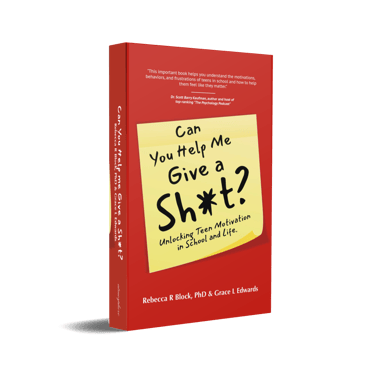Getting at the root, part I: Why high school and college students struggle with writing
Understand the common causes of teens' struggle with writing, and get proven strategies to help.
WRITING ADVICESTUDENT MOTIVATION
1/10/20243 min read
I'll admit it: when I first started tutoring high school and college students with their writing in my early twenties, I was overconfident. I'd loved writing since I was a kid. My mom swore my first complete sentence was "Mom, I'm going to be a writer when I grow up." I wrote dozens of lengthy papers in my rigorous undergrad program, which culminated in an even lengthier thesis project. I knew my Humanities degree wasn't good for much—but when it came to writing, I felt set.
So of course I thought that the students who needed support with their writing were just missing some key skills. Maybe they needed new idea generating strategies, like mind maps. Or maybe they needed new revision strategies, like printing, cutting, and reorganizing their content. Or maybe even editing strategies, like reading the paper backwards to spot the errors that are easy to skim over when you read it the right way.
Wow. I was so wrong. Not that these strategies aren't useful—they all can be very helpful. But while almost every writer I met said they "just wanted help getting a good grade" or they "just needed help with grammar," I discovered that there were often missing nutrients at the roots of their motivation to write, ones that had to be addressed before getting to grammar or grades.
The roots of writing
Most writing professors are familiar with what's called "the rhetorical triangle," and many teach variations of it to their students to help them understand why good writing doesn't (and shouldn't) look the same across all situations. The version I usually taught showed one word at each point: purpose, context, and audience.
Nothing fancy to look at. But the idea it represents is vital: no piece of communication exists without the communicator having a purpose for creating it, an audience to receive it, and a context within which that communication is created and received. And make no mistake: writing is fundamentally an act of communication.
The challenge with school writing is that a student writer's purpose (if they aren't already invested in an image of themselves as a developing writer, like I was) is generally something like "pass this class" or "keep my parents off my back." And the audience is generally the teacher, who the student knows is looking at the writing in order to evaluate it, not in order to learn something or be entertained. And the context for the whole exchange is school, which most students associate with boredom, drudgery, feelings of ineptitude, and a litany of unchosen expectations that sap their motivation.
This is in complete contrast to how communication functions in the world outside of school, where people craft images and text in order to entertain, persuade, or inform. In the world outside of school, audiences choose what to read, watch, or listen to based on what they want to know or how they want to feel. In the world outside of school, the events happening around writers and their audiences affect them in a range of ways, and trigger exchanges of communication that don't usually look like, "here is this thing I am giving you to evaluate," followed by "here is my evaluation of this thing you gave me."
Struggling student writers are almost never struggling in those areas outside school. They don't wallow in apathy and procrastination about their social media posts or text exchanges with friends. But they also typically don't see those forms of communication as anything meaningful—and thus they come to view themselves as bad writers rather than as writers who dislike writing for school.
Writerly identity matters
If you don't think of yourself as a capable writer, or experience writing as worthwhile, then you will approach every piece of writing as a painful chore to be finished as quickly as possible. Since writing is a complex and recursive activity—involving ideation, drafting, revising, editing, and with longer works a need to repeat those steps multiple times throughout the process— experiencing it as a chore is especially likely to produce bad writing. This confirms to the student they are as terrible at writing as they thought they were, and the cycle continues.
When I realized this was happening for almost all of the students I tutored and taught, I realized we had work to do before students would be ready to learn the skills needed for writing itself. They didn't need better ways to ideate, draft, revise and edit—yet. They needed:
a reason to believe it was worth learning writing skills, and
a reason to believe they were capable of learning them.
Building beliefs
I felt fairly confident in being able to help students see the value in writing, at least in purely practical terms. From one day to a week, I had students shadow people who worked in a career they were interested in and take note of all the writing they had to do.
I still remember a student I had who wanted to be a police officer. When I gave the assignment, he proudly told me a big reason he wanted to be a police officer was because it had nothing to do with writing. And a week later, he came back with a horrified expression, telling me how the officer he rode with for the day spent a full two hours of his shift writing reports. Similarly, students who planned to be engineers and accountants were appalled to discover that their technical skills might get them hired, but their communication skills were what would get them promoted.
Building students' belief in their own abilities was trickier, however. Reading Anne Lamott's funny and wise reflections about how every writer produces "shitty first drafts" helped to erode some of the belief students had that good writers just sat down and had brilliant prose fly off their fingertips (and therefore that anyone who didn't do that could never be a "good" writer).
But Lamott’s essay wasn't enough for those students who had received nothing but "constructive" feedback about their writing their entire student careers. They had all the evidence in the world they were incapable of learning to write well, from every piece of writing they'd ever gotten feedback on, which invariably contained lots of missed points for everything from being off topic to spelling and grammar mistakes, and which offered them almost no praise beyond the milquetoast variety of "good effort" or "keep trying, you'll get there!"
I do not blame the teachers who gave this feedback, by the way. Teachers, by and large, are prescribed the standards they must hold students to, the assignments they must make them write, and the kind of classroom sizes that make meaningful and nuanced feedback on writing almost impossible. When I was in high school, I had an English teacher who defied this norm and who has inspired me often since then. When I told him I was thinking of becoming a high school English teacher because of his influence, he begged me not to, confiding he worked over 100 hours a week to run his class the way he did and that his family had suffered for it.
I do blame our educational system. We're (kind of) clear on the outcomes we want to produce: prepared citizens and members of the workforce with skills in math, logic, communication, reading, analysis, and so on. But we've disregarded some fundamental truths about what kinds of conditions are absolutely necessary to create those outcomes. And we seem to have disregarded an even more fundamental truth: if our educational system doesn’t produce people who see themselves as strong and capable learners, they will struggle regardless of the field they go into, especially as the rate of technological change makes predictable careers with static skill sets as outmoded as being a blacksmith.
If students see themselves as strong learners, and writing as something that can be learned (rather than just a talent some are born with and others aren’t), then it opens up new possibilities in the student-teacher dynamic.
When I was a professor, putting those two pieces together—a reason to learn, and a belief writing can be learned—did help a number of my students. But some remained absolutely apathetic about writing, much to my frustration. When given opportunities to write for any audience, purpose, and context they wished, they sighed and asked me if I would please just tell them what to write about, how to write it, and how to get a good enough grade to pass the class. I could not figure out how to reach them. When a friend introduced me to a nonprofit that was working with high schoolers in ways that got them actually excited to set goals, make plans, and learn skills in pursuit of their ideas, I had to learn more. Eventually, I ended up leaving my position as a professor so I could work full-time with nonprofits operating in the K-12 space, because they seemed uniquely capable of filling the gaps left behind by educational policy failures.
In the process, I learned a lot about positive youth development, self-determination theory, and developmental relationships (yep, all this informed the research underlying much of the book Can You Help Me Give a Sh*t?). This caused me to see some of the struggles my writing students had wrangled with in a new way.
Part II of this series shares tips for instructors, parents and teens about how to help teens shift their writerly identity to enable better writing.


Socials
Workbook of activities to build lasting motivation just for newsletter subscribers




